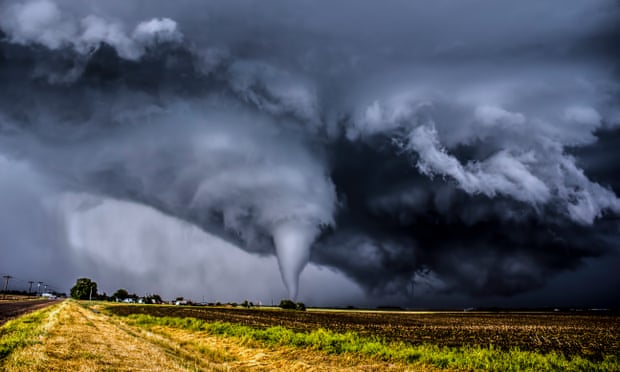At the Verso blog, McKenzie Wark examines both the brilliance and limitations of the book The Great Derangement: Climate Change and the Unthinkable by Amitav Ghosh, a distinguished Indian novelist who has also published several notable nonfiction books. In The Great Derangement, Ghosh seeks to explain why modern literature has largely failed to address climate change. According to Wark, Ghosh’s book drives the final nail in the coffin of that most durable of literary forms, the bourgeois novel. Read an excerpt from Wark’s piece below, or the full text here.
Climate change exceeds what the form of the bourgeois novel can express. As Ghosh acknowledges, it isn’t working in this “time when the wild has become the norm.” (8) Perhaps realizing its limitations, Arundhati Roy, for example, preferred to write in nonfiction about what Rob Nixon has so aptly called the slow violence of a developmentalism that imposes itself on a nature it cannot really perceive or value. As Nixon, Roy, Anna Tsing, and others are quick to note, to that developmentalism, local or indigenous people are either invisible or part of that “nature.”
Ghosh fears we are now entering into a great derangement, a time when art and literature concealed rather than articulated the nature of the times and the time of nature. His inexplicable attachment to the bourgeois novel as form at least makes him an acute observer of how this derangement works through its formal limitations.
Here he makes brilliant use of Ian Hacking’s book, The Emergence of Probability. In both science and literature, there were parallel movements to eliminate the weird and the miraculous from serious consideration, but at the expense of making the world seem a little more probable and predictable than it may actually be. When nature becomes predictable, the novel can move any strangeness emanating from it into the background. The everyday moves into the foreground.
Image via The Guardian.
